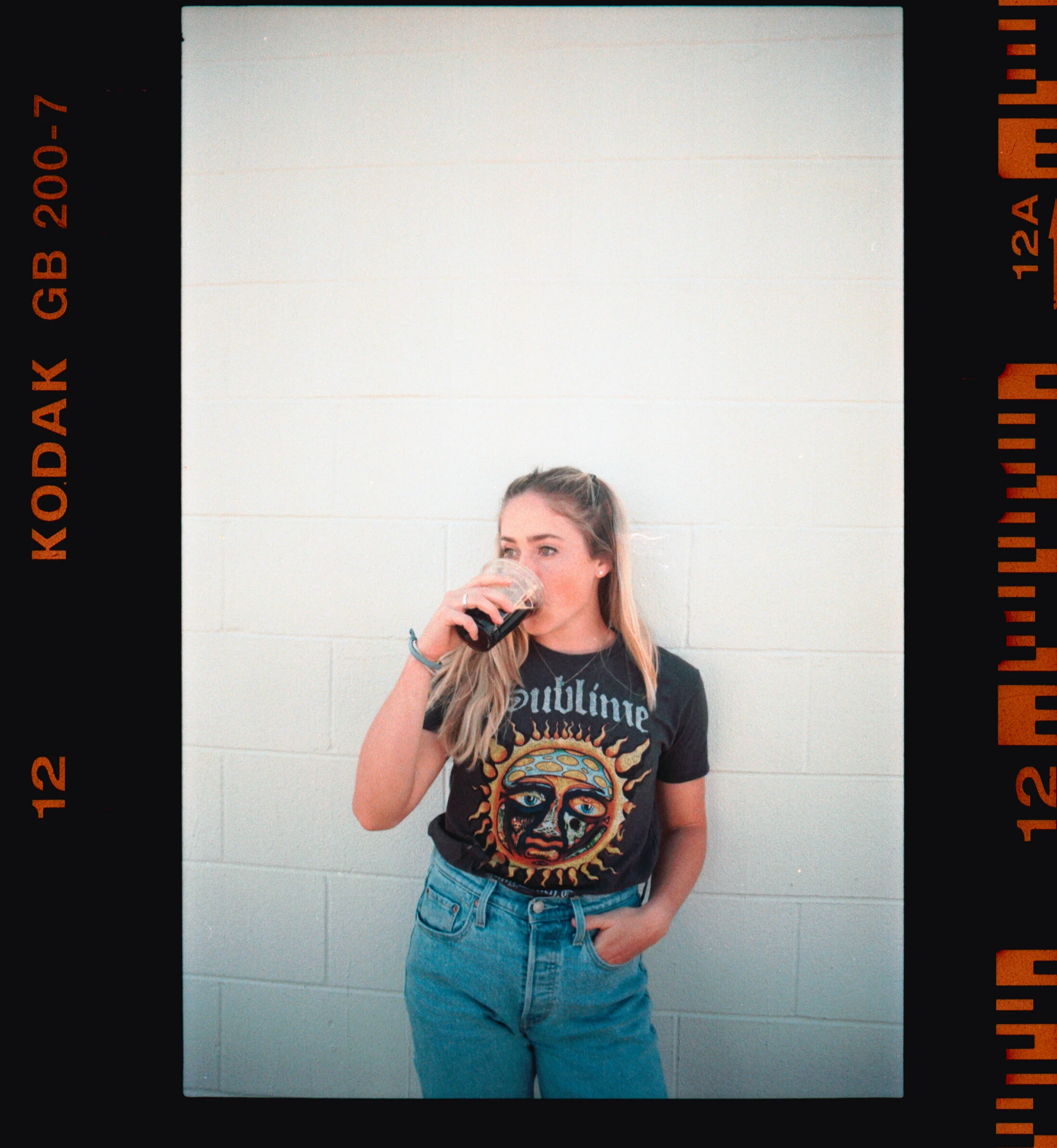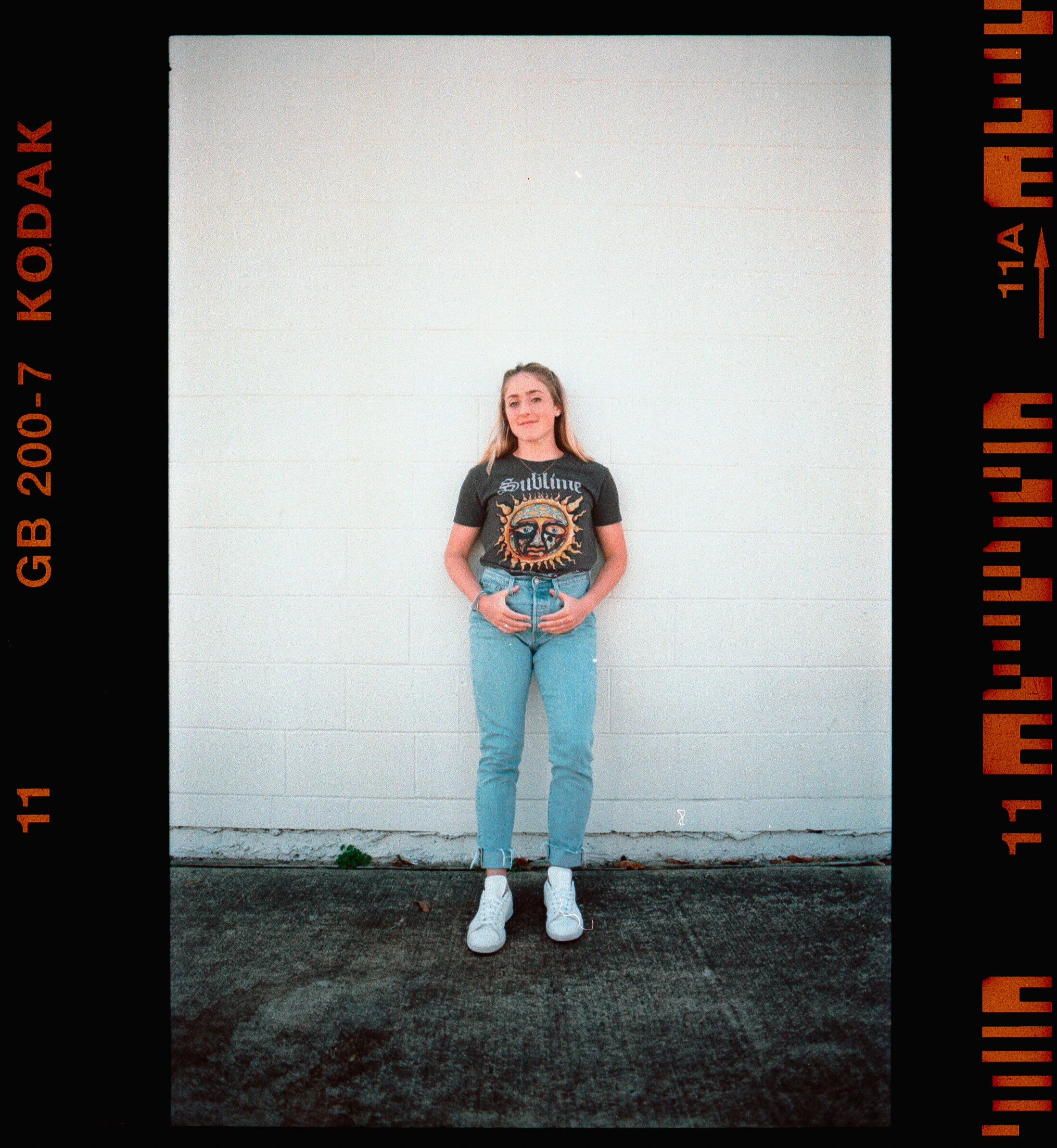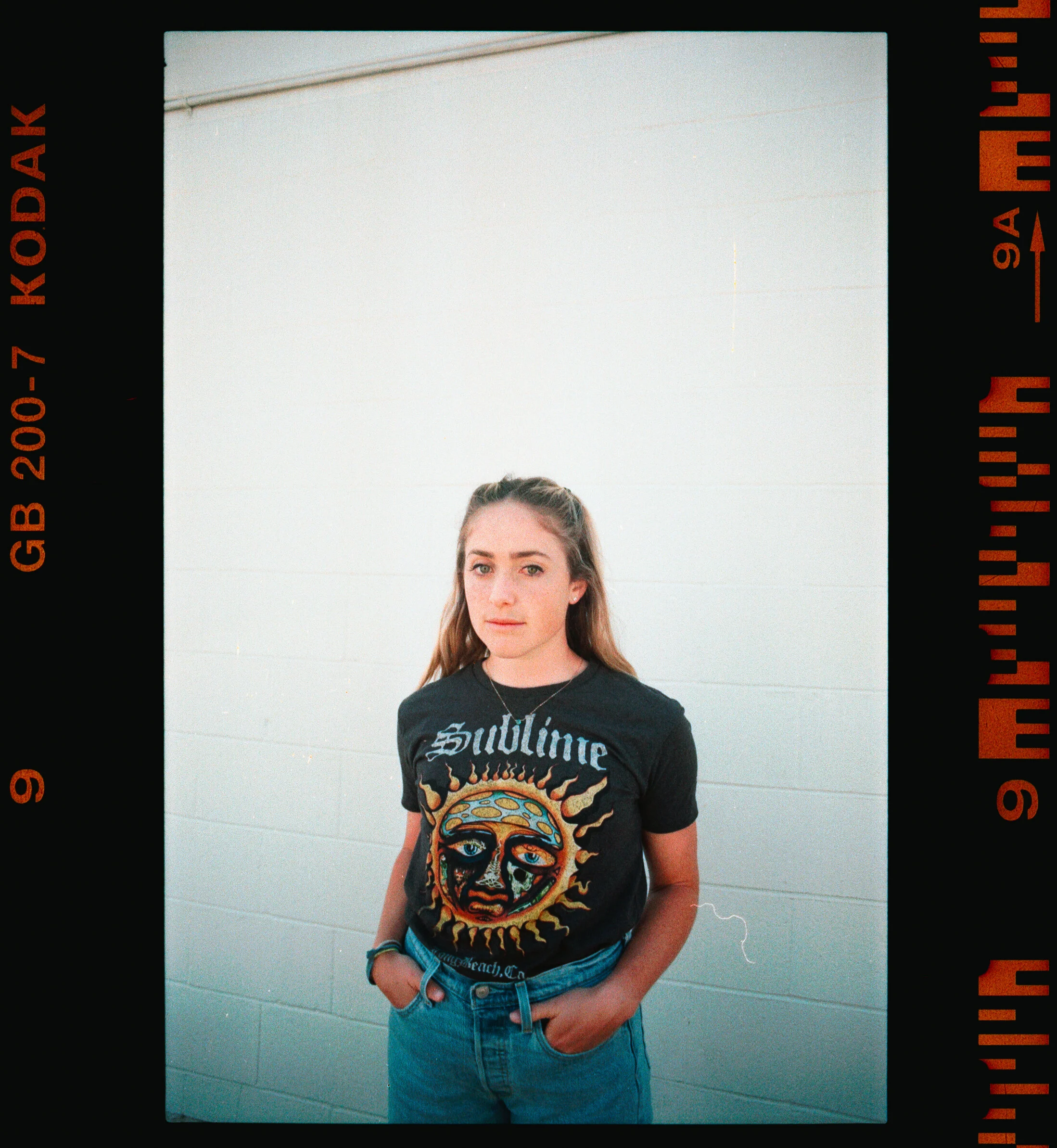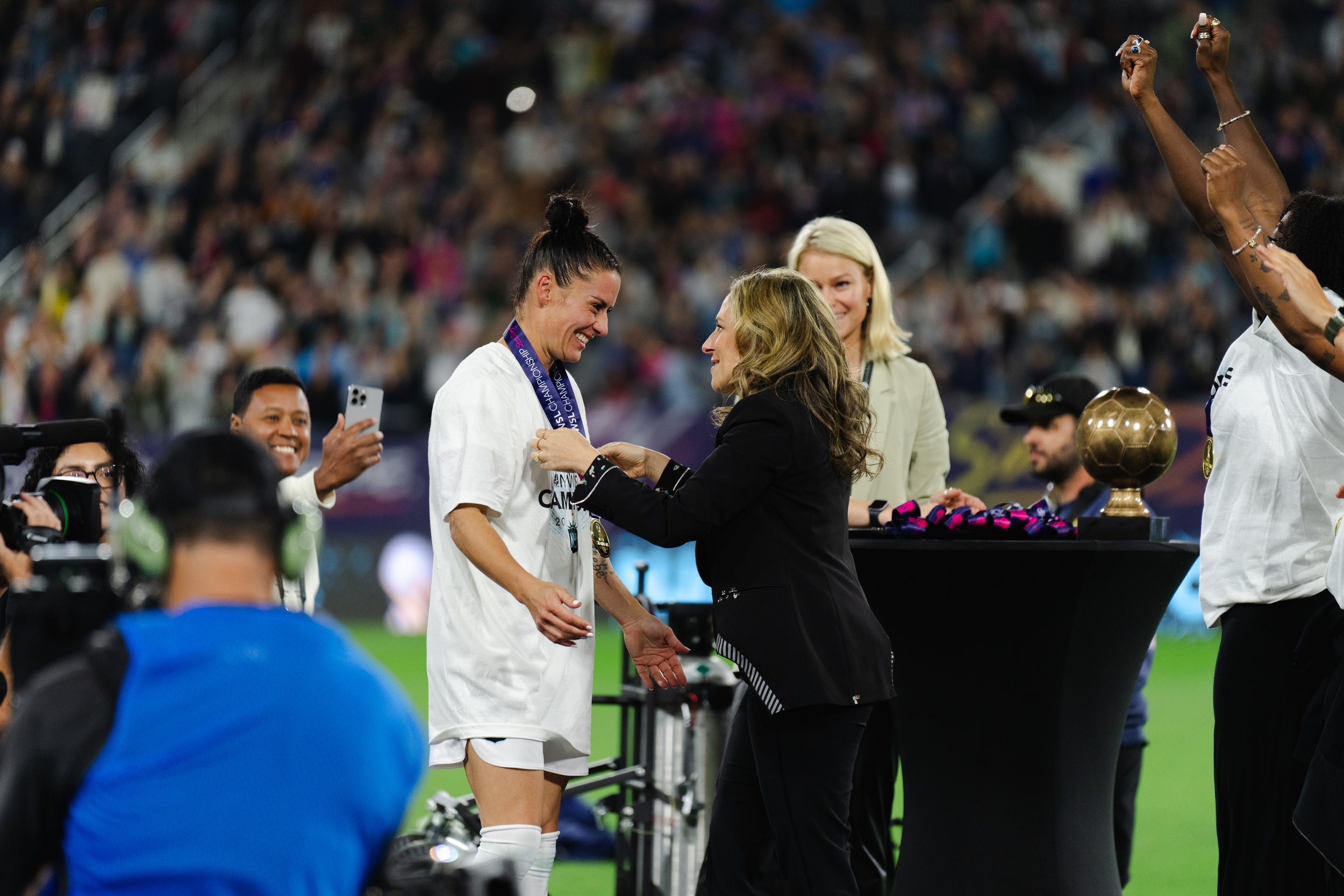Coffee Talk With Bri Visalli

FA Cup. Challenge Cup. Coffee cup. Let’s call it a treble.
As the Dash are gearing up for another arduous NWSL season, we had the chance to sit down with midfielder Bri Visalli at Grinder’s Coffee Bar, her favorite coffee spot in Houston.
While Visalli often visits Grinder’s with her teammates after training, we met up one-on-one on a quiet Sunday morning to revisit her path to the pros. Visalli has often been overlooked throughout her career, and having that chip on her shoulder has led her to shine in the FA WSL and the NWSL.
Visalli ordered an iced latte, I ordered an iced lavender latte, and we sat down in a corner of the shop to chat.
You’ve obviously been very successful at the pro level, and you’ve had the chance to experience and thrive in multiple countries and adverse situations. One of the things that stuck with me from our conversation before we sat down was how you would use your doubters as fuel. Where does that come from?
I think part of the reason why being told “no” has fueled me my entire life is because I think at a young age, there was a lot of stuff that happened that made me feel like I wasn’t worthy enough. It sounds terrible, but I just felt like that in general. I think my way of coping with it was saying, “no, that that's not going to define you. You're going to define your path.” It's more of a self-approval of myself and proving that that other person's opinion is just an opinion. In the grand scheme of life, it doesn't matter. But that’s just me. I don't care what you think about me. I know who I am. It’s all kind of a thing for myself, but hopefully, this resonates with some people that if they’re going through something, don't let outside factors really dictate your future.
I love that because it's true. I feel like, especially for women, we're told, “no, you can't do that.” Or even now, some people don't take women professionals seriously.
In my earlier days, and even ‘till now, when I tell people I play professionally, they question the concept of me playing professionally where they’re like, “Oh, so you get paid?”
And I'm like, “well, that would be by definition playing a professional sport, and you're being paid for it, so yeah.” And there are other subtleties within that as well, even in my close circle, which is kind of shocking that I would have people that don't quite understand it. But I'll get questions like, “When are you going to be done playing around with the soccer ball? When is this all going to be done?”
I’ve had people tell me, “Oh, you kick a ball around the field for a living. How’s that stressful?” As in, that's not a real job kind of thing. So I think the lack of respect comes in all facets of life. And again, that comes back to me saying, “I don't care if you don't understand, that's not my problem.” I know my purpose and why I'm driven to do it. And I still love the game. If I were motivated by trying to make money, I would not be in this profession.
Yeah, people might think just as a pro, you’d make bank, but that’s not the case here.
No, we're, we're working on it. I think it comes from visibility. And every interview I'm going to do from now on will preach for visibility because visibility is the gateway to funding. That's where you will have your return on investment when people can actually watch games easily. The fact that people have to go through different streaming devices to find our game is insane. So, I'm hoping that if I can keep preaching visibility to every article, maybe something will come out of it because I think that's the biggest thing for us moving forward, especially for the league. They need to secure something for us. That's going to get us on ESPN.
The coverage is about 3%. I just saw some sort of study the other day saying that on ESPN women’s sports get 3% of coverage. And that channel is on all day long, 24/7. My brother used to watch ESPN growing up, and they're constantly reporting. The fact that there's only 3% is mind-boggling. It’s almost like you actively have to try not to report on it to just have 3%. And I might’ve mentioned this earlier, but I just didn’t have any role models that were women to look up to in sports on TV. So hopefully, we change that.
Yeah, I completely agree.
We need that to actually see a viable pathway. I didn't even think about it until my senior season in college when everything kind of fell into place. I never dreamed of playing professionally. It wasn't a thing. So, I think visibility is huge. Without it, how do you show that there is a pathway?
Is that what led you to start your own coaching business?
I think I’m a very driven person, not only for myself but to serve others too. And coaching is basically servant leadership. I think the most ideal form of leadership is when you have someone that's up above you, serving you, and it shows you that they're there to support you. It's not just to rule over you. So part of being a role model in my mind would come with service leadership.
I want to at least create that environment for girls to see that going pro is not a faraway and intangible thing. I think closing that gap is also very important, and I do care a lot about it. When you work with me one-on-one, you're getting my 110%. Anything I do in life is like that.
I just want those girls to know that they're valued beyond what society tells them to. I want them to see that I play a sport, and I’m trying to compete like the men compete -- not judged based on how you look but based on what you can actually do.
I love that you have that initiative because, like you said, growing up you didn't have women to look up to in soccer, and that was the same for me. I grew up just watching Liga MX players and training with boys, which was fine. But there was still that disconnection of like “Oh, this isn't something that women can do or participate in.” Obviously, I love that that’s changing now. There are more women playing sports and more women involved in the behind-the-scenes of sports.
Yeah, and I think a big goal for me -- when I'm done with my playing career -- is to work on the men’s side. I do want to start gunning for those types of coaching positions.
And I feel like I'm at that level of playing to where we are starting to bridge the gap between the men's and women's game. We do have a lot of overlap when it comes to understanding the game from a tactical standpoint. Whereas in the past, I don't think that tactical knowledge was really there.
So, I feel like that would be a challenge for me and a barrier that I would want to personally help break for women's sports specifically. That's one of my big ones, but serving girls is also still a huge thing for me, So I'm not going to let go of that either.
Earlier, you mentioned visibility when it comes to women’s soccer. When you signed for West Ham in the 2018-2019 season, it was the first season the FA WSL went full-time professional. Was there a lot of hype around the league at the time?
Yeah, there was a lot of hype around it. And I would say in England the clubs get a lot of crossover from the men's side to the women's side because people just love their club. When you played for the club, it really meant something. I remember our pep talks were like, “All of our fans are here, and we're at home. No one comes in here. This is our club.” I think it was a lot of hype in that sense. It was the club above all else.
I’m sure you got to really experience that club passion at the FA Cup Final.
Yeah, that was amazing. That's like their Superbowl, and I didn't realize! One of my old college coaches is British, and he was like, “Do you understand what an honor this is?” And I was like, “No, should I be worried?” And then we got out there, and I was like, “Yep, he's right.” We were warming up, and I was in awe. There were so many people. I think there were about 45,000 fans.
What was it like playing in front of a crowd like that? Probably one of the biggest stages in European club soccer.
It was insane. You’d pass the ball, and you could just hear the roar of the crowd. It felt like when you're close to a firework, and you can feel it in your body, like a huge rumble. It was insane.
In your second season, Barclays came in to sponsor the league. Did you see a big change when that happened?
It was much more “buttoned up,” and there were photoshoots at St. George's park and new apps to watch the games. It definitely grew in coverage as well. Whereas in the past, my parents would struggle to see the games internationally. And then the second season, it was very easy to access the games. One criticism, I guess, of the NWSL is the accessibility to watch games is not really there and the same with the publicity.
Are there other things that the FA WSL is doing well that the NWSL could take note of? Things that could be improved?
It's interesting because there are year-long contracts in the NWSL, and there are also year-long contracts in England. So, we are going to have to compete to keep those players. A lot of the NWSL benefits and the way they treat players will hopefully grow because there's competition like England that's stepping in and going. “Hey, you want these good players? Well, you have to pay the premium or at least provide the same services that we're going to provide.” So I think overall, this competition and comparison between both leagues will boost player welfare. Hopefully, there'll be a positive externality to retain those high-level players. Whereas in the past, there weren’t other leagues, so there wasn’t that incentive to go that extra step.
What are some of those specific premiums that they would offer over there?
Club accommodation is very nice over there. And club accommodation with the Dash has been phenomenal, so I'm not even going to crap on that. It’s been awesome. But I think traditionally, club accommodation would have players living with host families in the past. So those would be the type of premiums that would get better over time.
Then other things like club-provided meals. That's a regular thing in England to have all of your meals taken care of. And you come to the training ground, and everything's sorted out for you. Maybe the NWSL will move towards providing full club meals, or even just training ground facilities, access to tech ball tables, and other things like that.
I know it seems silly, but players have lounges in England. Do we have lounges here? Not quite, but maybe we'll have that type of level in the future. I don't know. Those would be the premiums. I guess just the extra benefits that come alongside playing.
Were there any other differences you saw over there? Lately, there have been some worries about players leaving for Europe and England, specifically.
The World Cup helped the FA WSL a lot because there are tons of Dutch players that play there, and they were the ones that were in the final against us. And obviously, now the US has players over there, but I think there are tons of German, Dutch, Swedish, Irish, Scottish, South Korean players in the FA WSL. It's a very international league, and the quality is amazing because there are different styles of play. Even in the English league, they have German players, and they play the German way, and Dutch players play a very Dutch style. And I had a Spanish coach, and she very much put emphasis on possession. So I grew so much as a player because you're exposed to so much, and there are so many different views on football and how it should be played.
I guess the global “mesh” over there in England is sort of missing in the NWSL. I think we do have an international league here, but I'd love to see the growth of diversity in this league, to be honest. It would just kind of bring that global quality that the English league currently has.
You’re just starting your pre-season, and you guys are coming off of a great 2020 campaign. What are you looking forward to this season here? It should still be a pretty abnormal season, right?
It will be a bit normal, but it will be slightly abnormal because the squad will have the Olympics. So there'll be international breaks while we're still playing, and we're going to have to have essentially two teams, and within that, people are going to play different positions.
So it's a normal season, but it’s an abnormal one from the standpoint of personnel and swaps. It does make a huge difference. So the challenge this year is to take what we did last year, draw it out over a longer season, and do it with changing personnel on the fly.
Right now, it’s all about integrating the group and making sure we're all on the same page, and we know each other. I think that’s a huge part of why we were successful in the Challenge Cup. Everybody came together and put the team first. In order to put the team first, though, you gotta know who you're working with, and it's tough when people are coming in and out.
Hopefully, we can just roll with the punches and adapt. And I think we faced a lot of adversity last year, and we handled it gracefully. So hopefully, we're able to win a cup again. That’s the big goal.
Photography and Interview by Diana Hernandez












